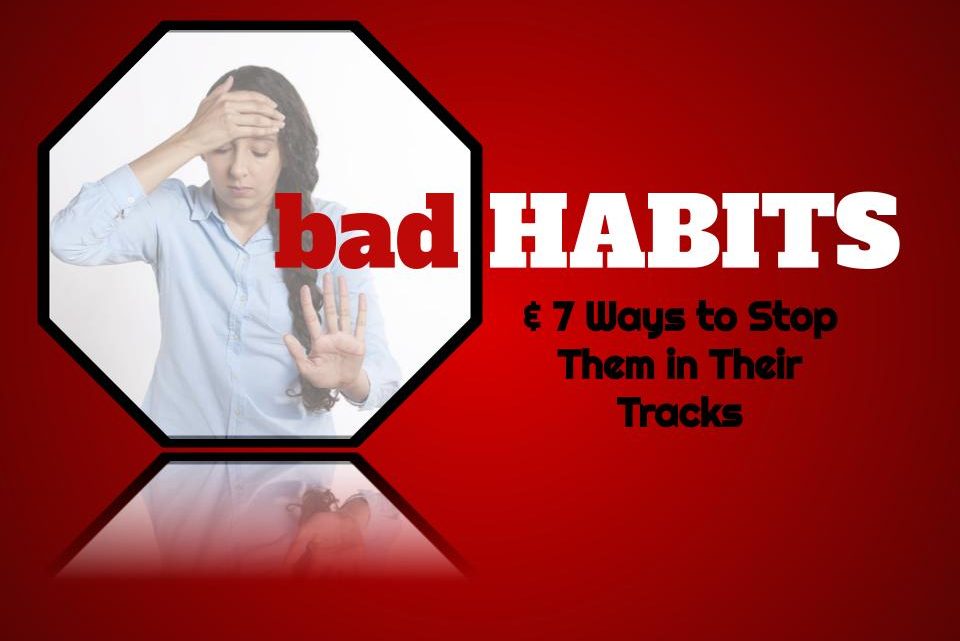I am a Millennial, so my habits began several years ago. Before the Y2K scare. Before COVID-19. And before I had children of my own. My bad habits are rooted deep. Some of them are the result of serious past traumas. Some are based on stupid mistakes I make day after day.
No matter what my bad habits are–or yours–we can kick them!
Remember, “I can do all things through him who strengthens me” Philippians 4:13, ESV).
Here are seven ideas how:
- Track your behavior.
No matter how bad your bad habit is, the triggering behaviors and emotions are important. Keep track for 3 days to a week and jot down where you are, what time it is, how you feel, and anything of note that recently happened. Write down who you were with and whether or not they were involved. This note-taking will be vital in determining the triggers for your bad habits. - Identify your WHY.
Although they get more attention than others, not all life changes are health-related. You may not want to change a habit to lose weight etc. Maybe you want to lose a little weight to run and play with your children or ride in an airplane comfortably. Maybe you want to stop sleeping late every morning because you plan on getting a day job or starting your own business. Knowing your WHY and being able to articulate your WHY to others. That brings us to number 3. - Share your plans with others.
The best way to kick a bad habit is to not go at it alone! Find some like-minded habit-breakers to join up with you or make sure all your friends and family know your plans. Having a support system will help you remember your WHY when times get tough, and surround you with people to celebrate every victory. - Replace bad habits with new ones.
Remember, you don’t have to suddenly replace every bad habit with a good habit. You just have to begin by replacing it with a new one. We aren’t trying to be perfect, only better. You don’t have to replace your mid-afternoon bag of chips with fruits and veggies–but maybe just water. You don’t have to replace your daily nap with an exercise routine–but maybe just another restful activity like listening to music, watching tv, or taking a bath. - Create reminders in your environment.
Your environment is often one big trigger for your bad habits. Changing your environment will often remind you to change your habits, and adding reminders will often change your environment. Writing yourself notes might help you remember your new habits. Placing a significant object in your sight during a “high trigger” time of day may help you remember your new habits. If possible, you can also painstakingly remove all signs of the bad habit from your home, your car, and your workplace. This will alleviate triggers, remove reminders, and change your environment all at once. - Set yourself up for success.
You may not always be successful, but that is never cause to give up! Lifestyle changes–especially those that last a lifetime–do not happen overnight. You may have many slip-ups, but the important thing is to remember your WHY and keep going strong. You can see results when you set yourself up for success. Set small milestones. Set measurable milestones. Set yourself up for success more than failure! - Give yourself grace.
It takes 21 days to form a new habit, so it takes at least that long to break an old one. In fact, since many of our bad habits are rooted in childhood, familial environment and histories, and trauma, it may take much longer than three weeks to break them. Give yourself grace when you slip-up and give yourself time to do the hard work of mindset and behavior changes.
Obviously there are other things you can do to help yourself make a major lifestyle change like breaking a bad habit. You can pray! You can draw closer to God in Bible study and prayer. You can attend church and ask your pastor’s guidance. I encourage you to do all these things!
Good luck and God bless you in your efforts.










